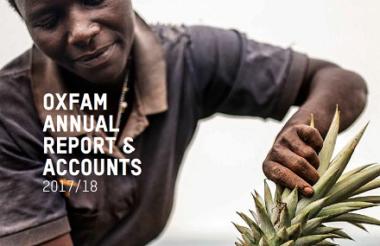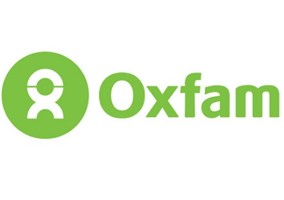Reports of abuse and harassment at Oxfam GB almost doubled in its most recent financial year, with a surge recorded after the Haiti scandal was revealed.
According to Oxfam’s recently published annual report and accounts, the charity’s safeguarding team received 155 reports in the year to March 2018, compared with 87 during the previous year.
Some 66 of these reports related to Oxfam GB’s international programmes, while 69 related to its trading division and 20 to other Oxfam GB divisions or partner organisations in the UK.
The charity has opened internal investigations into 111 of the 155 reports. It decided not to fully investigate 23, and it provided support or counselling to the others.
Of the 111 investigations, 40 have been completed, with 23 of the allegations upheld or partially upheld, resulting in disciplinary action ranging from written warning to termination.
A number of the reports were the subject of investigation by the police. The remaining investigations are ongoing.
The charity received 73 reports between 10 February and 31 March 2018 after it appealed for those who have experienced abuse and harassment to contact its safeguarding team.
These reports included historic cases dating as far back as 1992.
Mark Goldring, Oxfam’s outgoing chief executive, said in his foreword to the accounts: “The publicity we received in February led to an increase in the number of people reporting abuse.
“I am grateful to all of those who have come forward and it is important that they feel able to do so.
“We will investigate their allegations carefully and thoroughly, and wherever misconduct is found we will take decisive and appropriate action.”
Income
Oxfam GB’s income grew to its highest ever level of £427.2m in 2017/18, a five per cent increase on the previous year.
This increase was despite a £14.7m drop, 11 per cent, in donations and legacies, which included £8.4m that the charity received from the Department for International Development in 2016/17 but not in 2017/18.
The overall rise is driven by an increase of £27.1m in income from Oxfam GB’s affiliates, includes big increases in money from Oxfam Novib (The Netherlands) and Oxfam Germany.
As revelations about the 2011 Haiti safeguarding case emerged in the final weeks of the financial year, the charity said “the full impact upon Oxfam GB’s income is not yet clear”.
Goldring said: “From February, we felt the impact of some supporters cancelling their contributions, while many institutional donors froze existing or new funding.
“Although most of these institutions have now resumed funding after conducting their own audits, there has been an inevitable and continuing effect on our capacity to carry out vital work.
“Wherever possible, we have sought to limit the impact on frontline programmes – the recent redundancies, beyond the timeframe of this annual report, have been a painful but important part of that effort.”
Meanwhile, the charity’s expenditure also increased by 9 per cent to £438.7m from £402.6m the previous year, also due to an increase in spend on charitable activities.
These charitable activities includes an increase in grants made to Oxfam GB’s affiliates by £11.5m, including a large increase in funding to Oxfam Novib.
Overall, the charity made a £11.9m net deficit, compared to a £6.4m surplus in the previous year.
Staff
Oxfam GB’s average full-time equivalent headcount during 2017/18 was 4,747, compared to 4,986 the previous year. It spent £1.2m on redundancies, down from £2.6m the previous year.
However, the charity says it actually grew its headcount by 3.8 per cent during the year, with 5,274 employed staff as at 31 March 2018.
The charity says its increase in staff numbers during 2017/18 was primarily due to its “recruitment of a significant number of new deputy shop managers and to organisational changes relating to the new Oxfam 2020 structure”.
It is likely that the charity's staff numbers will decline in next year's accounts as Goldring announced in May that 100 UK staff members would be made redundant following the Haiti scandal.
Fraud
In 2017/18, Oxfam recorded a loss of £1,044,000 through fraud – 0.24 per cent of its total income – compared to £547,000 the previous year, or 0.13 per cent of total income.
The charity attributes this rise to improvements in the nature and reach of anti-fraud awareness as well as the fact the charity “is responding to so many emergencies across the world”.
Recorded suspicions of fraud and corruption rose by 18 per cent on the previous year, from 296 cases to 348 this year.
Not all of these cases were proven, but all were responded to by Oxfam or passed to the relevant authorities.
|
Related articles












